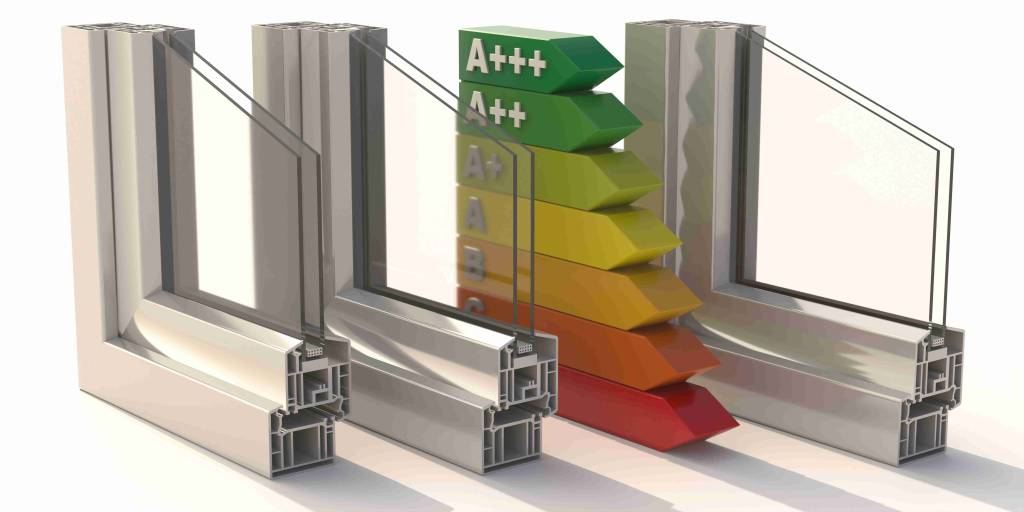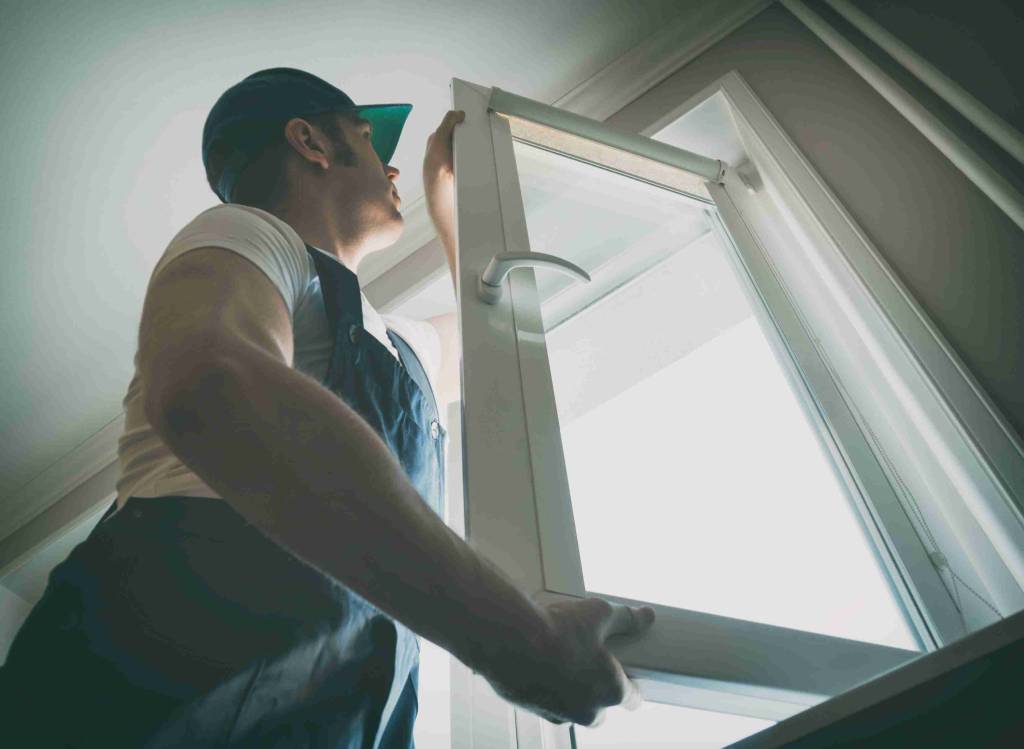A window replacement is a serious investment. Your windows aren’t only for gazing over your lovely yard, but they’re also responsible for security and energy efficiency. Choosing the right windows can help improve your home and make it a better place to live, but it takes some research and forethought to get it right.
Is it time for you to get some new glass in your house or a full window replacement? Watch out for these ten mistakes to avoid when thinking about a window replacement.
1. Sticking with the Same Style You Already Have
There are tons of window replacement options available, and all that research can seem daunting. You might be tempted to just pick the same windows you already have. After all, they’ve worked for this long; why make the change?
While sticking with the same style of windows you already have might be easy, it’s not always the best choice. Technology is constantly progressing, and windows last a long time. Think about the last time you bought windows. Did you call the contractor on a flip phone? Or worse, did the phone have a cord?
It’s almost guaranteed that the windows you can get today are much better than the style you have currently. Don’t stick yourself with the same style for another 20 to 25 years when there could be another style that works so much better for your needs.
Take the time to research materials, styles, efficiency, and see which type of window best suits your home. Don’t just order the same windows you already have because it’s easy. There’s a good chance something better is out there. You just have to find it.
2. Thinking About Style Only
There’s so much more to windows than just looking good and plugging holes in your house. Yes, you want a window that looks appealing, but don’t pick something just because it’s pretty.
Your windows are responsible for more than curb appeal. They’re often the weakest point of your home with regards to both intruders and severe weather events. That’s why it’s essential to choose windows that are functional as well as stylish.
There are many aspects you should consider when thinking about a window replacement:
- Security
- Weather protection
- Size
- Materials
- Pane thickness
- And yes, style
Think about where you’re located. Is crime an issue? What kind of weather do you experience? Then, take those considerations and pick windows that suit your environment. For example, if you live in a hot region like Arizona, choosing windows that disperse heat would be a must. If you live in an area known for harsh weather, like Florida, windows that can hold up to hurricane-force winds would be a must.
Although style is certainly important, it shouldn’t be the only consideration when it comes to choosing new windows.
3. Neglecting Energy Efficiency

Your heating and cooling system is responsible for most of your home’s energy consumption. It takes a lot to keep your house comfortable! But once your HVAC brings the space to a decent temperature, it needs to stay there. If the warm or cool air doesn’t stay in your house, your system will have to work even harder and continue to use energy.
Most of your energy loss comes from your home’s insulation and roof; however, your windows are responsible for more energy usage than you might think. According to the U.S. Department of Energy, heat gain and loss through your windows are responsible for between 25% and 30% of your heating and cooling energy use.
When thinking about a window replacement, considering energy efficiency should be toward the top of the list. Look for windows with an NFRC label.
An NFRC label will tell you four things about the energy efficiency of your new windows:
- U-factor – An indicator of how well the windows can keep heat from escaping the room on a scale of 0.20 to 1.20. The lower the number, the more heat is kept inside your home and the more energy efficient the windows.
- Solar heat gain coefficient – How well the windows can prevent unwanted heat gain. This is especially important during hot summer months (especially in warm climate areas) as it helps to keep your house cool. Solar heat gain coefficient is measured on a scale from 0 to 1. The lower the number, the better the windows resist heat gain from the sun.
- Visible transmittance – How much natural light the windows let through on a range from 0 to 1. Higher numbers mean more light can enter your home, which could help you save on your energy bills from lighting.
- Air leakage – How much air the windows let through. Obviously, you don’t want drafts to get in your house, so look for windows with a low air leakage number.
Some NFRC labels also have a condensation rating, which tells how well the windows resist condensation. Window condensation can lead to mold and rot, so it’s a good idea to get windows with good condensation ratings. The higher the number, the more resistant the windows are to condensation. Condensation rating is optional on NFRC ratings, so you might not always see it on labels.
Finding windows with a good NFRC label will help you save money on your energy bills for years to come!
4. Choosing the “Budget” Option
Window replacements aren’t cheap, especially if you have a larger home. But in the world of home improvement, you get what you pay for. If you choose the cheapest option, it might save you some money in the short run, but you’ll definitely pay for it in the long run.
Cheaper budget windows are made from lower-quality materials. For example, vinyl windows are much than fiberglass windows, but they’re also harder to maintain. You might save a few dollars, but vinyl windows require more maintenance and don’t last as long as their high-quality fiberglass replacements.
So, are you really saving money if the cheaper option requires more work over time and won’t last nearly as long? When it comes to replacing your windows, budget might be an important deciding factor, but don’t let it completely dictate your choice.
Of course, that doesn’t mean you have to go get the most expensive windows on the market, either. Give yourself a reasonable budget and choose windows with a nice balance between affordability and quality. Don’t just go for the cheapest option, thinking you’re going to save some money. You won’t.
5. Thinking About Only the Initial Cost
Windows are a long-term investment. Many window replacement options can last anywhere from 20 to 25 years! Once you make a decision, you’re stuck with it for a long time.
Since it’s such a long-term investment, that means you should never think about just the initial cost. Yes, windows are expensive—especially if you choose a high-quality, energy-efficient option—but it’s important to consider what the costs will be over time.
For example, let’s say you’re deciding between a low-end $350 window and a middle-range $550 window. Yes, you might save $200 per window right away—which certainly sounds appealing—but think about how those costs will add up in the long run.
The cheaper window is made from cheaper materials. It’ll require more maintenance (your time and energy) and won’t last nearly as long, let’s say 15 years. The more expensive option is made from quality materials that provide greater energy efficiency, doesn’t need as much maintenance, and could last up to 25 years.
If your energy bills are $180 per month, and the quality windows boost your home’s energy efficiency by 10%, it would take ten years for the windows to make up the difference in the initial cost. While that might seem like a long time, it’s important to remember those windows will last 20-25 years. You’ll end up saving hundreds of dollars over the window’s lifetime by choosing the more expensive option.
And that’s just for energy efficiency! Cheaper windows don’t last as long, which means you’ll have to replace your windows more often.
Windows aren’t a short-term investment, so don’t treat them as such. Don’t let the initial sticker shock scare you away from quality. You’ll end up saving in the long run, and you won’t have to perform as much maintenance.
6. Ignoring Security
Windows are made of glass, which can be easy to break. They’re often the most fragile point of entry in your house. If someone really wanted to get inside—like a burglar—all they need is a decent-sized rock.

When shopping for new windows, take some time to consider security. If you choose a window that’s easy to break or doesn’t offer secure latches, you might be leaving your home vulnerable. Selecting windows with stronger glass or secure locks can help give you peace of mind and protect you, your family, and your belongings.
Security is more than just preventing break-ins; it’s also about privacy. Your windows are responsible for letting light into your home, but you also don’t want people to see in (within reason, at least). If you live in a highly populated area or along a busy street, you might want to think about adding some tint to your windows to make it a bit more difficult for passersby to look into your home. Not only does it give you more privacy, but onlookers also won’t be able to see all your prized possessions inside, which could deter break-in attempts as well.
7. Forgetting About Maintenance
Like everything else in your home, windows need maintenance. Not only does it keep your windows looking good, but it also helps them last for years to come. However, it’s not uncommon for homeowners to buy windows without thinking about the upkeep. That’s a huge mistake!
Different window materials require different levels of maintenance. For example, wooden window frames need to be repainted and resealed every five years or so. If they’re not, they’ll hurt your house’s curb appeal or, worse, start to rot and let mold and mildew into your home.
Not only does this maintenance take time out of your already-busy schedule (if you do it yourself), but it also costs money for supplies and possibly hiring a contractor.
Choosing a window replacement that requires minimal maintenance like vinyl and fiberglass will help you save time and money in the future. Plus, it’ll keep your house looking fresh!
8. DIY Installation
Unless you’re a licensed contractor, don’t even think about installing new windows yourself. Yes, labor can be expensive, but DIY window installation won’t save you any money. In fact, there’s a high chance that it’ll cost you way more money than if you just hired a contractor in the first place!
There’s a lot of skill, measurements, and knowledge that goes into replacing the windows in an entire house. Even a minor mistake can be catastrophic.
For example, a DIYer might not place or seal their windows properly. A couple millimeters off, what’s the big deal, right? Well, those few millimeters of space could be enough to let water into your home during a heavy rainstorm. That water could drip into your walls and absorb into the wooden structure of your home, leading to all sorts of mold and rot.
Now, you have to pay someone to rip down your wall, remove the mold, and replace serious structural components of your home. Which option sounds cheaper: just hiring a contractor to install your windows properly, or dealing with all the rot and mold damage? In most cases, hiring a professional window installer is the much cheaper option when you consider what could go wrong.
Of course, professionals aren’t perfect either, and there’s a possibility they could make a mistake. However, most window installation companies provide warranties or guarantees on their service, meaning no matter what, you won’t have to deal with pesky errors in the future. When you’re thinking about a window replacement, hire a contractor, period.
9. Hiring the Wrong Window Replacement Contractor

Because installing windows is such a precise and important task, you want to make sure the contractor you choose is up for the job. Hiring the wrong contractor can be just as bad as attempting the job yourself!
Look for a contractor that has at least the following qualifications:
- Specialize in window installations – A general contractor can likely install windows, but an expert touch will ensure the project goes smoothly and that you won’t have any unforeseen issues in the future.
- Have the proper licensing – Working with an unlicensed contractor is a recipe for disaster. Make sure whoever you’re working with is fully licensed by the state and/or county in which you live.
- Liability and property insurance coverage – Installing windows can be dangerous, and you don’t want to be responsible if a worker gets hurt. Make sure the contractor is fully insured for both property and liability damage to protect you from injuries and your home from accidental damage.
If a contractor doesn’t have even one of these qualifications, keep looking. Window replacements are a big deal, and you want someone you know is up for the task. It’s also a good idea to check a window installer’s reputation with former clients. Check various sources to see how a contractor is viewed by their customers, including:
- Contractors’ websites
- Online reviews on Yelp, Facebook, Google, Angi, etc.
- Ask friends and neighbors
- In-person interviews with the contractor
Similarly to choosing the budget option for the windows themselves, it’s never a good idea to choose the cheapest contractor. Remember, you get what you pay for! The contractor with the lowest quote is likely the cheapest for a reason. Either they’re inexperienced and just need the work or they cut corners to keep costs low. Either way, that’s not the person you want installing your windows.
Be sure to collect several quotes (at the very least two or three), and immediately throw out the lowest option. You want to find a contractor that’s somewhere in the middle. That will give you a healthy balance between affordability and quality work.
10. Not Asking Enough Questions
Once a homeowner finds the perfect contractor to install their windows, it’s common for the homeowner to simply believe the contractor knows what they’re doing and lets them get to it without a second thought. This is one of the biggest mistakes you can make!
Whenever you hire someone for a big job like this, you want to make sure you understand exactly what’s going to happen. Here are five of the most important questions to ask your contractor before they start work:
- What does the window installation process look like? – This will give you an idea of how long the project will take, how often you’ll have people trapsing through your house, and where they’ll be working.
- Are you properly licensed and insured? – Double checking your contractor’s licenses and insurance policies is always a good idea before any work starts. Better safe than sorry!
- Who will perform the installation? – Some window installers hire subcontractors to do the work. Know exactly who will be in your home, whether it’s direct company employees or subcontractors, to ensure all workers are reputable and accredited. If it is a subcontractor, do some additional research to ensure they’re qualified to do the work and have a strong reputation.
- Do I need a permit? – Some home improvement projects require permits from the county or state. Make sure you understand what you’re responsible for before the work starts. It might also help you understand any additional fees or timeline extensions included in the project.
- What happens if there’s an issue? – When it comes to window replacements, things don’t always go smoothly. Ask your contractor what you should do in the event of a problem. Get the name and phone number of someone you can call to resolve any issues.
When you ask the right questions, you and your contractor can get on the same page to make the project go much more smoothly, even if issues pop up.
Simplify Window Replacements

Compare Quotes from Top-rated Window contractors in your area.
Replacing your home’s windows is a big commitment of both time and money. That’s why it’s crucial to avoid these common window replacement mistakes. If you take your time, avoid “budget” options, and choose the right contractor, you could enjoy quality windows for decades to come.
Alternatively, Alpha Living can help pair you with certified window replacement contractors in your area so you can compare quotes and save time and money. All it takes is to enter your zip here and submit your details!





Facebook
Comments